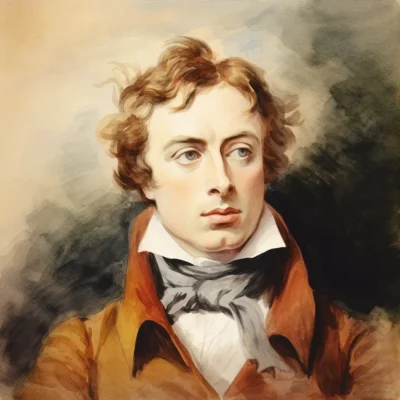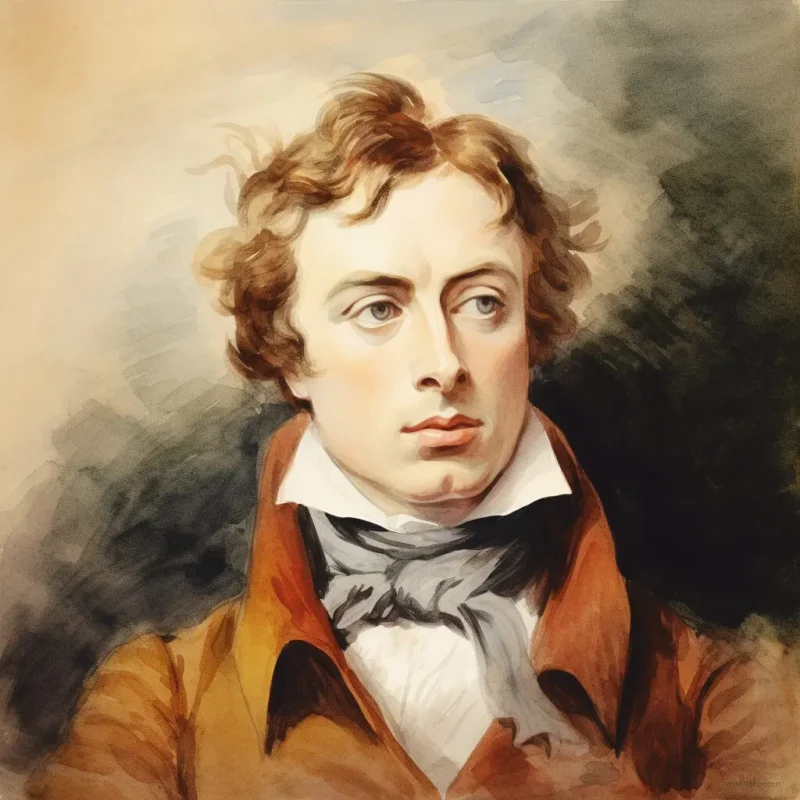John Keats: A Life and Legacy Unfurled
Early Life and Loss:
John Keats, born on October 31, 1795, in London, was the eldest of four surviving children. His life was marked by tragedy from a young age. His father died when he was eight, and his mother succumbed to tuberculosis while he was fourteen.
Education and Medical Apprenticeship:
Despite the hardships, Keats excelled in his studies at Clarke’s School in Enfield. However, financial constraints led him to apprentice as a surgeon in 1811. Though his medical training provided valuable scientific knowledge, his true passion lay in poetry.
Literary Awakening and Debut:
Inspired by Edmund Spenser and the Romantic literary movement, Keats began writing poetry in earnest around 1814. He met Leigh Hunt, a prominent editor, who introduced him to influential literary circles and published his first sonnets in 1816.
Rise and Recognition:
In 1817, Keats published his debut collection, “Poems by John Keats,” which garnered mixed reviews. Undeterred, he wrote his acclaimed odes, including “Ode to a Nightingale,” “Ode on a Grecian Urn,” and “To Autumn,” exploring themes of beauty, transience, and the power of art.
Love and Illness:
1819 saw Keats fall in love with Fanny Brawne, a source of joy and inspiration. However, his personal life was overshadowed by tuberculosis, a disease that had already claimed his younger brother Tom. His health steadily declined, forcing him to seek treatment in Italy in 1820.

Tragic End and Lasting Impact:
Despite valiant efforts, Keats succumbed to tuberculosis on February 23, 1821, at the young age of 25. Though his published works were limited, his talent and influence were undeniable. He championed the beauty of the natural world and human experience, leaving an enduring legacy in English literature.
Beyond the Biography:
Here are additional aspects of Keats’ life and work that you might find interesting:
- Relationships: Keats’ connections with fellow poets like Percy Bysshe Shelley and William Wordsworth shaped his development.
- Influence: His imagery, style, and philosophical inquiries significantly impacted later generations of writers, including the Pre-Raphaelites.
- Critical Reception: His early popularity grew steadily, reaching its peak in the Victorian era.
- Legacy: Today, Keats is celebrated as one of the greatest English Romantic poets, remembered for his evocative language, emotional depth, and timeless themes.
I hope this comprehensive overview of John Keats’ life and works satisfies your request. Feel free to ask further questions or delve deeper into specific aspects of his fascinating story.

